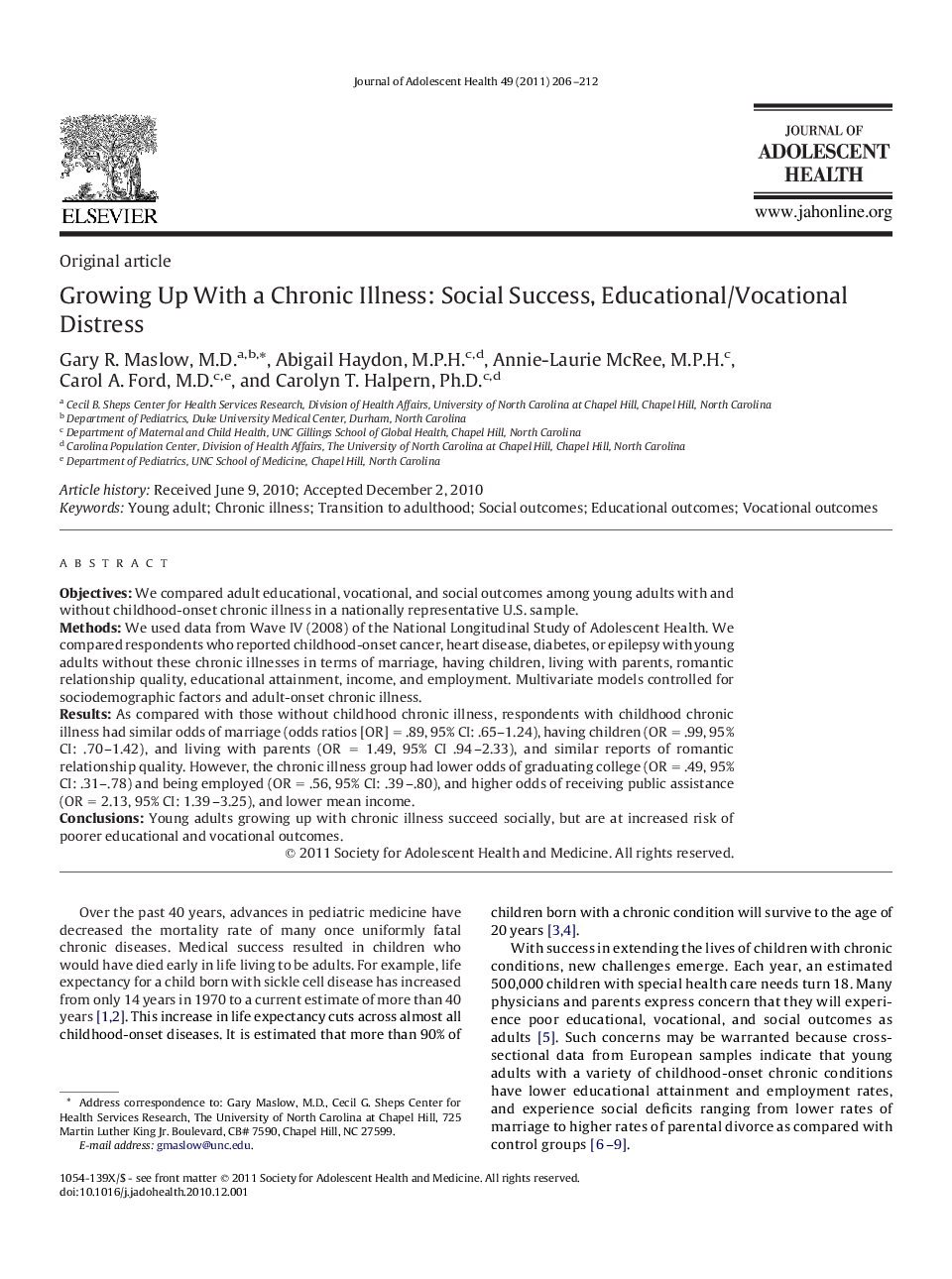| Article ID | Journal | Published Year | Pages | File Type |
|---|---|---|---|---|
| 1079292 | Journal of Adolescent Health | 2011 | 7 Pages |
ObjectivesWe compared adult educational, vocational, and social outcomes among young adults with and without childhood-onset chronic illness in a nationally representative U.S. sample.MethodsWe used data from Wave IV (2008) of the National Longitudinal Study of Adolescent Health. We compared respondents who reported childhood-onset cancer, heart disease, diabetes, or epilepsy with young adults without these chronic illnesses in terms of marriage, having children, living with parents, romantic relationship quality, educational attainment, income, and employment. Multivariate models controlled for sociodemographic factors and adult-onset chronic illness.ResultsAs compared with those without childhood chronic illness, respondents with childhood chronic illness had similar odds of marriage (odds ratios [OR] = .89, 95% CI: .65–1.24), having children (OR = .99, 95% CI: .70–1.42), and living with parents (OR = 1.49, 95% CI .94–2.33), and similar reports of romantic relationship quality. However, the chronic illness group had lower odds of graduating college (OR = .49, 95% CI: .31–.78) and being employed (OR = .56, 95% CI: .39–.80), and higher odds of receiving public assistance (OR = 2.13, 95% CI: 1.39–3.25), and lower mean income.ConclusionsYoung adults growing up with chronic illness succeed socially, but are at increased risk of poorer educational and vocational outcomes.
